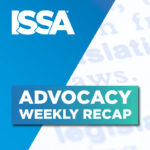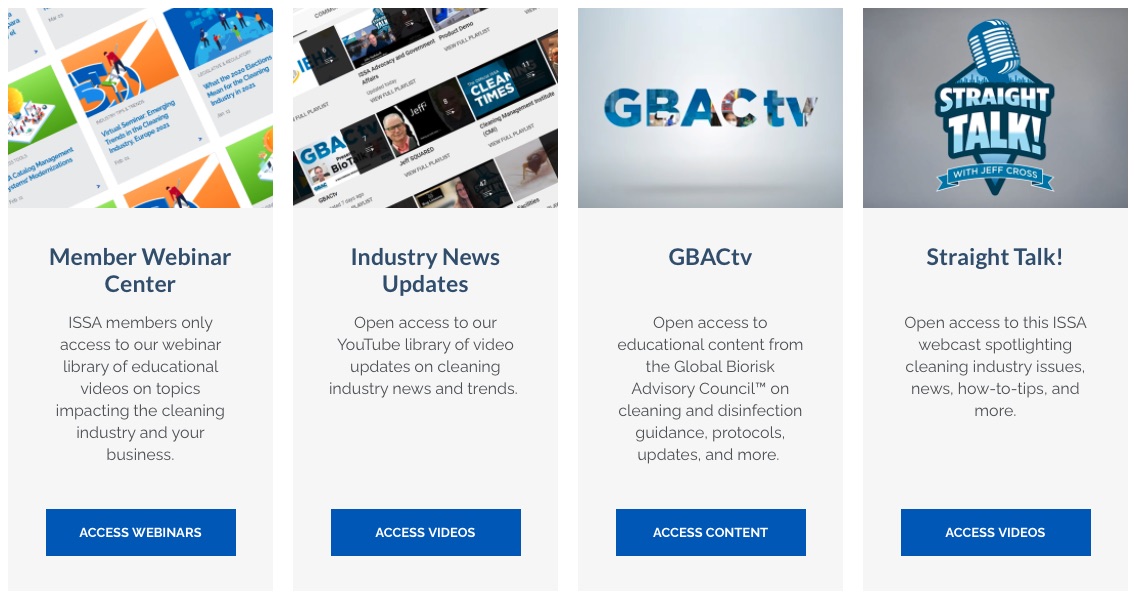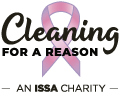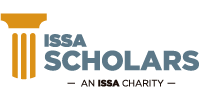News
ISSA Advocacy Recap—Outcome of State Ballot Initiatives Related to the Cleaning Industry
November 13, 2020
Welcome to the ISSA Advocacy Recap, our regular roundup of the latest public policy issues impacting the cleaning industry. This week’s recap touches on the outcome of recent state ballot initiatives related to the cleaning industry, the U.S. Treasury approving a state and local tax workaround for business owners, a federal judge ordering the Trump administration to reveal businesses’ loan data, and more.
Outcome of 2020 State Ballot Initiatives Related to the Cleaning Industry
Voters across the country approved at least 85 of 124 ballot measures on Election Day 2020, according to the National Conference of State Legislatures. Measures get on state ballots in one of two ways—through a citizen initiative, where citizens have an idea for a statutory or constitutional change and gather a sufficient number of signatures to place the initiative on the ballot, or through a referral to the ballot from the legislature. This ISSA article summarizes the outcome of state ballot initiatives from the recent 2020 general election on four key issues important for the cleaning industry.
Treasury Approves Workaround to SALT Deduction Cap for Business Owners
The U.S. Treasury Department and Internal Revenue Service approved a type of state workaround to the US$10,000 cap on the state and local tax (SALT) deduction in President Trump’s 2017 tax law, The Hill reported. The guidance could help some business owners get around the cap, which has been among the most controversial provisions in the law. Several states have enacted legislation under which noncorporate businesses can pay state income taxes at the entity level, rather than at the individual level on their owners’ returns as would be typical. The state actions were intended to help business owners get around the $10,000 limit because the 2017 legislation only capped the SALT deduction at the individual level.
Judge Orders Trump Administration to Reveal Loan Data
A federal judge ordered the U.S. Small Business Administration to release details on coronavirus pandemic-related loans that would disclose information on businesses that benefited from $717 billion in federally-backed borrowings, NBC News reported. The judge ordered the agency to disclose all of the names, addresses, and loan amounts issued through the Paycheck Protection Program (PPP) and Emergency Injury Disaster Loan program. The decision comes after a lawsuit was filed by a dozen news organizations, charging that the agency was not fulfilling its obligations under the Freedom of Information Act.
Probes Opened into Possible PPP Loan Fraud
The federal Paycheck Protection Program, designed to lessen the economic impact of the pandemic, is beset by extensive instances of fraud, according to PYMNTS and based on public records and interviews with government officials. The program provided about $525 billion to 5.2 million businesses. Banks administered the loans on behalf of the government and were not required to ensure that applicants were telling the truth about their financial situations. Program funds ran out in August and Congress and the administration have yet to renew them.
Florida Legislative Committee to Work on COVID-19 Liability Shield
The Florida legislature established a Pandemic and Public Emergencies Committee that will consider issues regarding coronavirus-related liability protections for businesses. Such measures are likely to be debated during a 60-day special session and are expected to be a priority when the next regular session begins in March.
Other links of interest
- Oregon Implements Emergency COVID-19 Workplace Regulations
- What California’s AB5 Law Means for Cleaning Service Referral
- McConnell, Pelosi Once Again at Odds over Size of Coronavirus Stimulus
- Governments Offered Hazard Pay to Frontline Workers. Can They Keep It Up?
- Senate Releases Spending Bills, Setting up Negotiations for December Deal





